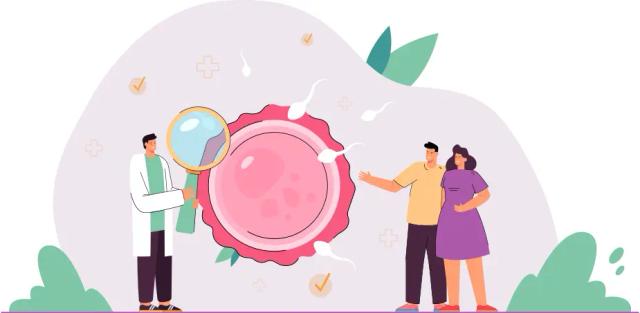Benefits

Get benefits upto
₹75,000
IVF Package

0%
on EMI

FREE
Consultation

Free
Semen
Analysis
Our Fertility Centres in India
Begin Your Parenthood Journey with Crysta IVF
- FREE Consultation
- 0% on EMI
- Free Semen Analysis
- Get upto ₹20,000 Benefits

Talk To An Expert
Get Personalized Consultation!
By continuing, you agree to ourT&CandPrivacy Policies
Opt-in for WhatsApp updates
What People Say About Us
Loading reviews...
FAQs
Is IVF the only treatment for infertility?
No. IVF (In Vitro Fertilization) is not the only treatment for infertility. There are several other treatments available, depending on the cause of infertility, such as fertility drugs, intrauterine insemination (IUI), surgery, and others.
No. IVF (In Vitro Fertilization) is not the only treatment for infertility. There are several other treatments available, depending on the cause of infertility, such as fertility drugs, intrauterine insemination (IUI), surgery, and others.
What are the signs of the best IVF center in India?
Here are the essential signs you must look for when seeking the best IVF center in India:
- Good success rates of live births per cycle
- Experienced and skilled doctors and embryologists
- State-of-the-art laboratory and equipment
- Comprehensive fertility evaluation and personalized treatment plans
- Cost transparency
- The supportive and compassionate staff
- Positive patient reviews and testimonials
When you choose Crysta IVF, you can trust that you're in good hands. We have a long history of helping couples achieve their dreams of having a family.
Here are the essential signs you must look for when seeking the best IVF center in India:
- Good success rates of live births per cycle
- Experienced and skilled doctors and embryologists
- State-of-the-art laboratory and equipment
- Comprehensive fertility evaluation and personalized treatment plans
- Cost transparency
- The supportive and compassionate staff
- Positive patient reviews and testimonials
When you choose Crysta IVF, you can trust that you're in good hands. We have a long history of helping couples achieve their dreams of having a family.
Is IVF treatment a time-consuming & tedious process ?
IVF may seem like a daunting task & tedious process to couples who know nothing about the process. But in fact, the process consists of only 3 main steps - Stimulation, Egg Retrieval, and embryo transfer. Moreover, with the ever-growing medical technologies IVF is getting less invasive every day bringing you closer to your parenthood dream.
IVF may seem like a daunting task & tedious process to couples who know nothing about the process. But in fact, the process consists of only 3 main steps - Stimulation, Egg Retrieval, and embryo transfer. Moreover, with the ever-growing medical technologies IVF is getting less invasive every day bringing you closer to your parenthood dream.
What is the total cost of IVF treatment in India?
The overall IVF treatment cost can range anywhere between INR 80,000 - 1,80,000. However, you should keep in mind that the cost may vary depending upon a number of factors including the cause of infertility, IVF type, the person's medical condition, and the number of tests.
The overall IVF treatment cost can range anywhere between INR 80,000 - 1,80,000. However, you should keep in mind that the cost may vary depending upon a number of factors including the cause of infertility, IVF type, the person's medical condition, and the number of tests.
How would I know whether I need IVF treatment?
If you've been trying to conceive for over a year without success you or your partner might be dealing with infertility.The best way to know for sure is to undergo a comprehensive fertility evaluation by a fertility specialist.Some indications that IVF may be necessary include:
- Blocked or damaged fallopian tubes
- Endometriosis
- Male factor infertility, such as low sperm count or motility
- Ovulation disorders
- Unexplained infertility
- Previous failed attempts at other fertility treatments
- Genetic disorders that can be detected through preimplantation genetic testing
We highly recommend you consult a fertility expert at Crysta IVF for your fertility evaluation.
If you've been trying to conceive for over a year without success you or your partner might be dealing with infertility.The best way to know for sure is to undergo a comprehensive fertility evaluation by a fertility specialist.Some indications that IVF may be necessary include:
- Blocked or damaged fallopian tubes
- Endometriosis
- Male factor infertility, such as low sperm count or motility
- Ovulation disorders
- Unexplained infertility
- Previous failed attempts at other fertility treatments
- Genetic disorders that can be detected through preimplantation genetic testing
We highly recommend you consult a fertility expert at Crysta IVF for your fertility evaluation.
Is there any age limit for IVF treatment?
As per the ART bill 2020, the upper age limit for IVF in India is 50 years for females and 55 years for males. However, many fertility clinics have their own guidelines regarding age and may not offer IVF to women over a certain age, typically in their late 40s or early 50s, due to the lower success rates and potential risks associated with advanced maternal age.
As per the ART bill 2020, the upper age limit for IVF in India is 50 years for females and 55 years for males. However, many fertility clinics have their own guidelines regarding age and may not offer IVF to women over a certain age, typically in their late 40s or early 50s, due to the lower success rates and potential risks associated with advanced maternal age.

